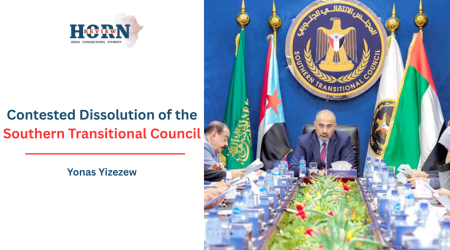
27
Jan
U.S. House Committee’s Push for Somaliland Office: Countering Chinese Influence and Shaping the Region’s Geopolitical Future
In a far-reaching move that underlines the increasing U.S. interest in the Horn of Africa, a recent resolution by the U.S. House Foreign Affairs Committee called for the opening of an office for Somaliland in Washington. This move seeks to deepen ties with and boost support for the breakaway republic in its efforts to win international recognition since unilaterally declaring secession from Somalia in 1991. The resolution comes amidst growing alarm about China’s increasing influence in the region and wider geopolitical implications for this often-overlooked corner of the African continent.
Somaliland, the self-declared state, has a government institution, currency, security forces, and functions like any other de facto state since declaring independence from Somalia in 1991. However, it still remains unrecognized by the international community, making foreign trade with the rest of the world and seeking international aid more difficult.
Countering Chinese Influence
The growing Chinese presence in Africa has raised alarms in Western nations about investments that could give Beijing strategic control over critical infrastructure and resources. In Somaliland, Chinese companies have been involved in investments, particularly in telecommunications and port development. Some analysts see this as an influence-building platform by Beijing in the region. The new proposed U.S. office in Somaliland aims to counter these developments, deepening ties with a potential ally, promoting democratic governance, and enhancing economic development.
Implications for Somaliland’s Future
The resolution by the U.S. House Foreign Affairs Committee marks a significant step in American foreign policy, particularly in the context of the growing Chinese presence in the Horn of Africa. Since declaring independence from Somalia in 1991, Somaliland has slowly built itself into a relatively stable entity, unlike the war-torn south of Somalia. Its lack of international recognition has denied it the ability to engage in foreign trade and access international aid, even as it governs itself effectively. The proposed U.S. office could change this by providing Somaliland with greater international standing, helping to pursue its goal of recognition.
The implications of this U.S. initiative extend well beyond Somaliland itself. First and foremost, the establishment of a U.S. office could lead to increased international engagement for Somaliland. This diplomatic gesture may encourage European nations and regional powers to reconsider their positions regarding Somaliland’s statehood. With U.S. support growing, there may be a broader recognition and increased diplomatic backing for Somaliland’s independence.
A stable Somaliland could also serve as a bulwark against extremism, contributing to regional security. However, the ongoing U.S.-China rivalry may complicate the issue of Somaliland’s autonomy. Domestic politics in Somaliland could turn toward U.S.-aligned reforms, with increased scrutiny of its human rights record. The changing regional alliances could also reshape the geopolitical landscape in the Horn of Africa.
The U.S. House Committee’s call for a Somaliland office marks a significant shift in American foreign policy, aligning it more closely with the realities of contemporary geopolitical dynamics. As the Horn of Africa grapples with the challenges of economic development, security, and international recognition, the outcomes of this initiative could reshape the future of Somaliland and influence the broader regional balance of power. This will be critical as the U.S. navigates its engagement strategy in a region increasingly defined by competition between global powers.
By @bettyfikru07, Researcher at Horn Review










